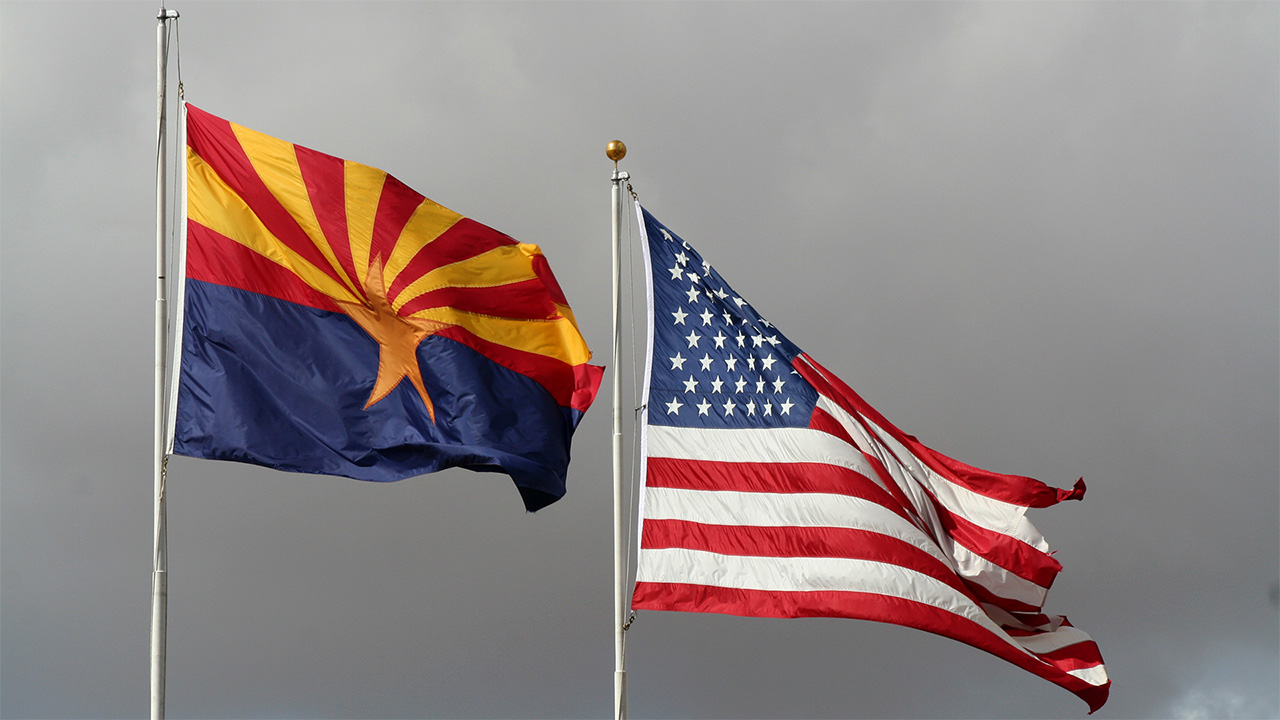7.5 million Arizonans are now facing age-verification checks for adult content – and non-compliant websites could be hit with fines of $250,000 for every violation
The law came into effect on September 26

Here at Tom’s Guide our expert editors are committed to bringing you the best news, reviews and guides to help you stay informed and ahead of the curve!
You are now subscribed
Your newsletter sign-up was successful
Want to add more newsletters?

Daily (Mon-Sun)
Tom's Guide Daily
Sign up to get the latest updates on all of your favorite content! From cutting-edge tech news and the hottest streaming buzz to unbeatable deals on the best products and in-depth reviews, we’ve got you covered.

Weekly on Thursday
Tom's AI Guide
Be AI savvy with your weekly newsletter summing up all the biggest AI news you need to know. Plus, analysis from our AI editor and tips on how to use the latest AI tools!

Weekly on Friday
Tom's iGuide
Unlock the vast world of Apple news straight to your inbox. With coverage on everything from exciting product launches to essential software updates, this is your go-to source for the latest updates on all the best Apple content.

Weekly on Monday
Tom's Streaming Guide
Our weekly newsletter is expertly crafted to immerse you in the world of streaming. Stay updated on the latest releases and our top recommendations across your favorite streaming platforms.
Join the club
Get full access to premium articles, exclusive features and a growing list of member rewards.
Age verification laws have today – September 26, 2025 – come into effect in Arizona.
You now have to provide ID to view adult content online. The bill requires publishers of content deemed "harmful to minors" to set up age verification processes to ensure only over-18s are accessing its content.
We have seen numerous examples of age verification laws in recent months, most notably the UK's Online Safety Act. These laws have often been subject to criticism and tools like the best VPNs appear to help users bypass them with ease. Supporters of Arizona's bill say it is about protecting minors from harm, while its opponents cite privacy and security risks surrounding the collection of personal data.
Implement age verification or face fines
House Bill 2112 states "reasonable age verification methods" must be employed by commercial entities if more than one-third of their content can be seen as "harmful to minors."
The bill says an "individual's identifying information" mustn't be transmitted – either directly or indirectly – to any "federal, state, or local government entity." Government-issued ID or "a commercially reasonable method" may be used to verify age, but the age-verification service must not "retain any identifying information of the individual."
News-gathering organisations are exempt from the rules. In the UK, there were reports of news channels being affected by age-verification requests and having content incorrectly censored.
Fines can be handed out to companies who don't comply with the bill, and parents of minors can bring legal cases against offending organizations. The bill says parents of minors who access harmful material have a "right of action against the offending entity."
This also applies to anyone whose information is retained or transmitted as a result of "an entity's violation" of the bill.
$10,000 per-day penalties can be imposed on sites that violate age verification requirements. Violating identifiable information retention and transmission rules can see penalties of $10,000 per instance.
If a minor accesses harmful content as a result of these violations, penalties of up to $250,000 can be given.
The bill was proposed by Republican representative Nick Kupper and first read on January 21, 2025. On May 13, it was signed into law by Arizona's Democrat governor, Katie Hobbs.

Personal data at risk
This bill, and others like it, have left many asking if age verification companies can be trusted with our data. There are various cybersecurity risks posed by age verification checks and experts have said the laws are "a disaster waiting to happen."
Data breaches, identity theft, fraud, and realistic phishing scams could all occur once our data is handed over.
In a statement provided to FOX 10 Phoenix, adult-entertainment distributor, Aylo, said it has "supported age verification of users for years." However, it added that any law "must preserve user safety and privacy, and must effectively protect children from accessing content intended for adults."
"Any regulations that require hundreds of thousands of adult sites to collect significant amounts of highly sensitive personal information is putting user safety in jeopardy," it said.
According to the Free Speech Coalition (FSC) and its Age Verification Bill Tracker, the number of US states with age verification laws in effect now stands at 23.
Two more states have passed laws which are not yet effective. Ohio's laws will come into effect on September 30, 2025 and Missouri's on November 30, 2025.
The FSC has said it "whole-heartedly supports the goal of protecting young people from material that is age-inappropriate or harmful." However, it cited "practical, technical, and legal problems with the current proposals being put forward by state legislatures."
These included the fact users may not be comfortable with sharing personal data, the risk of data breaches, impact on free speech and expression, and the use of VPNs in bypassing age checks.
Follow Tom's Guide on Google News, or add us as a preferred source, to get our up-to-date news, analysis, and reviews in your feeds. Make sure to click the Follow button!
We test and review VPN services in the context of legal recreational uses. For example: 1. Accessing a service from another country (subject to the terms and conditions of that service). 2. Protecting your online security and strengthening your online privacy when abroad. We do not support or condone the illegal or malicious use of VPN services. Consuming pirated content that is paid-for is neither endorsed nor approved by Future Publishing.

George is a Staff Writer at Tom's Guide, covering VPN, privacy, and cybersecurity news. He is especially interested in digital rights and censorship, and its interplay with politics. Outside of work, George is passionate about music, Star Wars, and Karate.
You must confirm your public display name before commenting
Please logout and then login again, you will then be prompted to enter your display name.
 Club Benefits
Club Benefits










